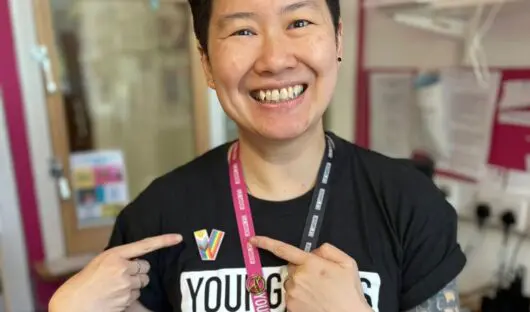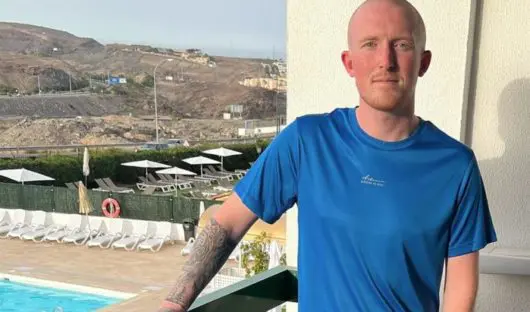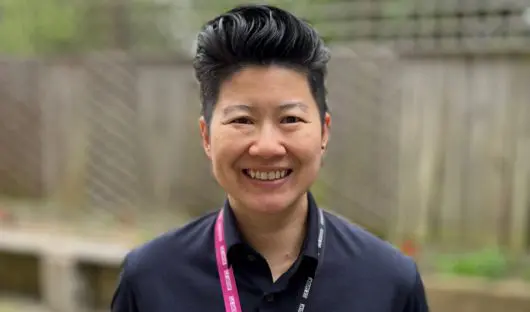Being trans with cancer
One young adult we support bravely agreed to tell his story and highlight the challenges he’s faced as a transgender cancer patient. While remaining anonymous, he hopes this honest account will reach and support other trans young people facing cancer.
Cancer is a hard subject to talk about. It’s closer to the bone than most things, and in a way so is being transgender.
Nearly everybody trans knows that medicine is not always a friend. A lot of us have a history of being mistreated or misunderstood by the medical profession.
I lied a lot during my treatment. I said I didn’t mind when really I did, I said I felt fine when I didn’t, I said I was happy when I wasn’t. There were points during my treatment when I wasn’t able to see anybody, or leave my hospital room or feel as if I had any life at all worth saving.
I felt things would have been different if there was just somebody there who knew me, but nobody could come. Being 19 when I was diagnosed, I was in the awkward in-between age where I felt like an adult, but relied on my family to advocate for me still. My mum was still making my dentist appointments, but suddenly I was alone in a hospital and nobody knew me so nobody knew I wasn’t fine when I said I was. That’s one piece of advice I’d give to all young people going through treatment – let somebody know you.
It occurred to me more than once that it wouldn't be ‘me’ who died, it would be a name and a person I wasn’t anymore, that my life since my transition hadn’t counted for anything.
Something I thought about a lot while in hospital was how my death would be recorded and what my death certificate would say. One thing a lot of people aren’t aware of is that in order to change the name and gender on your birth certificate you have to obtain a Gender Recognition Certificate, which is nearly impossible given the number of hoops to jump through.
I’m incredibly fortunate to have been on hormone replacement for several years already, which means I use synthetic testosterone as my dominant sex hormone. This means I no longer have periods, which for me made staying in hospital an easier experience than what it could have been. A lot of trans-masculine people don’t take hormones for whatever reason, and in my position might have needed pads or tampons and not known how to ask for them. I wouldn’t have known how to ask for them.
Having the privilege of ‘passing’ as a cisgender (somebody who is not transgender) male meant that it was easier to avoid difficult questions, but harder to offer explanations for seemingly innocuous things. Explaining to my cancer team that my cancer could not reoccur in my testicles because I do not have any was one of the more glamorous moments of treatment. Sometimes people don’t know how to approach something like that, and you have to take the lead yourself, even if it makes you a little bit uncomfortable.
The one piece of advice I have for somebody trans going through cancer treatment, is not to expect perfection, but to know your worth, and to expect better.
If I hadn’t found information out through my own research, I don’t think I would have ever known why my treatment was slightly different, because the people on my cancer team were trying so hard not to be insensitive. I’ve found that people will invent all sorts of strange terms to describe you in the hope that, by over complicating things, they will avoid offence.
The word ‘transgender’ for example, I’ve heard people putting ‘a’ in front of it or ‘ing’ on the end of it, for no reason I can see whatsoever. A person is transgender, and the process is called transition, like a transition from primary school to high school. It’s a process, and it doesn’t need to be any more scary or complicated than that.
It’s those very small details that are easy to overlook that are the constant reminder that you’ve got something other people don’t. I was in A&E once with sepsis and had to provide a urine sample, but was given something that was clearly intended for somebody with different anatomy than my own. I found it easier to make it work myself than to point out the error, because I didn’t want to draw attention to myself, and then be treated differently.
The goal for me at least, is to be just like everybody else.
When I was moved to an intensive treatment unit, there was a time when I was too weak to get changed myself, and there was such fear among staff about who would be most sensitive to send in – a male nurse or a female nurse – that they just sent in both.
I understand that you cannot always ask for a perfect set of circumstances, but that memory sticks with me still as one of shame and embarrassment. In a perfect world, that wouldn’t have happened, and my one piece of advice for somebody trans going through cancer treatment is not to expect perfection, but to know your worth, and to expect better.
Sometimes, I would look at the way my face and body had changed, and the things I would never be able to do again or even get to try, and I would wonder what the point was.
Appearance and body image are very important. Gender dysphoria is the heightened awareness of those aspects of personal appearance that may indicate to others that you are of the opposite gender than the one that you feel. What my eyes show me is not always what other people see.
Cancer, or more accurately chemotherapy, will change your appearance.
For me, my hair had always been a point of control. In those moments in my life when I felt like I was lacking, a new haircut always put me somewhere back on a level. The first thing I did when I started treatment was ask to have my head shaved, not because it would fall out imminently, but because I wanted it to be my choice. It felt, in a very small way, that I had removed the ability for my cancer to take something from me that I loved, by choosing to take it myself.
You will have to put down certain parts of yourself so you can carry cancer, which is just as heavy as being transgender can be.
Being trans, you cannot expect understanding from everyone, and you have to learn not to hold ignorance against people. It was my experience that I was safe to expose that world to people who asked, but I was never obliged to expose it to just anyone.
You mustn’t forget about yourself, but you must also have the capacity to hold multiple things at once; you will have to put down certain parts of yourself so you can carry cancer, which is just as heavy as being transgender can be.
For me, I can’t say for certain one way or the other whether being transgender made having cancer harder, but it did and still does present some unique challenges. As long as you’re willing to do a little bit of educating and explaining, there are people close by through charities like Young Lives vs Cancer and Teenage Cancer Trust that will truly do their best to make things better for you.
Never did I expect to meet so many people who didn’t know me but still wanted the best for me, who made me feel cared about when I might not have cared about myself and who showed such open-minded willingness to understand what it is to be transgender, with no prejudice whatsoever. It’s nice to know that even if the system itself isn’t perfectly engineered, there are people you will be able to count on, whatever might set you apart.
I never intended to be a mouthpiece, or a feature on a website. I wanted to very quietly sail through my cancer. But I know better than anyone that there’s not enough information on being young and trans with cancer, because I was looking for information and there was none there.
I felt like the only person in the world who had ever been in my position. I hope that by being honest, and filling that empty space I found, somebody like me in the future won’t have to feel so alone.
Posted on Tuesday 28 June 2022


